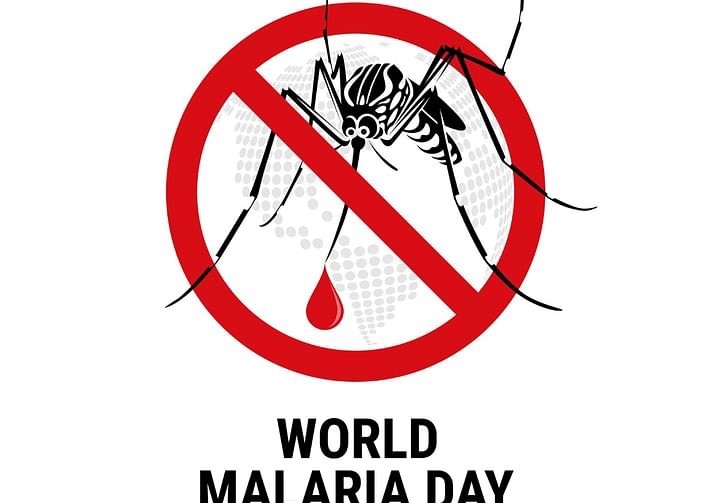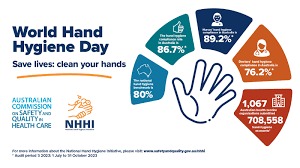World Malaria Day 2024: A Renewed Commitment to Unite Against Inequity in Malaria Care

World Malaria Day 2024: A Renewed Commitment to Unite Against Inequity in Malaria Care
On World Malaria Day, 25th April, the global health community comes together under the banner of “Accelerating the Fight Against Malaria for a More Equitable World.”
25 April 2024
By Ishika Kumar
On World Malaria Day, 25th April, the global health community comes together under the banner of “Accelerating the Fight Against Malaria for a More Equitable World.” This theme is an extension of last year’s theme “My Health, My Right,” which features an advisory awareness regarding the urgent need to address the bleak inequities in access to malaria prevention, detection and treatment services.
Dr Daniel Ngamije, Director of the WHO Global Malaria Program, highlighted the profound impact of malaria on the most vulnerable groups of global society, calling for a concerted effort to drive progress toward a more equitable health future. “Our collective work aims to contribute to a more equitable future, prioritising the most vulnerable, including young children in impoverished regions, pregnant women and displaced populations who bear the brunt of this disease,” says Ngamije. As malaria continues to pose a significant global health threat, the 2022 World Malaria Report indicates a disturbing stagnation in progress towards the global malaria targets to effectively reduce the cases till complete eradication.
The report estimated 608,000 deaths and 249 million new cases of malaria worldwide in the previous year, emphasising the disease’s relentless grip, particularly on young children and pregnant women in sub-Saharan Africa, and other marginalised groups like refugees, migrants and indigenous populations.
The Persistent Burden of Malaria
Despite being preventable and treatable, malaria’s burden is heaviest on those least able to bear it: the young, the impoverished and the displaced. Dr. Ngamije directed that moral and practical factors are imperative to enhance support for these groups, not only to alleviate their suffering but also to advance global health security.
In Sub-Saharan Africa, where the majority of malaria cases and deaths occur, socio-economic disparities aggravate the disease’s impact, targeting the ones on the lower end of the spectrum. Children under five, who are particularly vulnerable to infectious diseases, suffer disproportionately. This vulnerability is compounded in areas plagued by poverty and inadequate healthcare infrastructure, where access to preventive measures like insecticide-treated nets (ITNs) and effective malaria treatment is limited and close to none.
High Burden to High Impact Initiative
The WHO and the RBM Partnership have spearheaded the “High Burden to High Impact” (HBHI) initiative, focusing on countries weighing the highest malaria burden. The initiative advocates for a data-driven approach, targeting interventions to reach the most affected first. This strategy was reinforced by the recent signing of the ‘Yaoundé Declaration’ by the Health Ministers from HBHI countries, pledging to accelerate efforts and address the root causes of malaria’s persistence, including barriers related to gender and financial limitations within the affected communities.
The Drive Towards Malaria Elimination
The fight against malaria also extends to regions with lower incidence, where elimination is within reach but still challenged by persistent inequities. Mobile populations, such as migrant workers and refugees, often face significant barriers to accessing malaria prevention and treatment services. These groups are frequently overlooked whilst considering overall health planning, a gap that must be closed to achieve the elimination of malaria.
Innovative Tools and Strategies for Universal Health Coverage and Being Equipped for Elimination
Recent years have seen promising developments in the fight against high-risk populations to malaria, including the introduction of dual-active ingredient nets and the development of malaria vaccines. These tools represent significant advancements in malaria prevention, particularly if they can actively be deployed in an equitable manner, championed by the WHO, furthering the cause.
Moreover, the WHO Global Malaria Program has recently launched a new operational strategy that aims to integrate health equity, gender equality and human rights into all aspects of malaria response. This strategy emphasises the ardent need for primary healthcare systems that ensure universal health coverage, making health services available and affordable for all, particularly the marginalised and disadvantaged.
Dr. Ngamije reiterates the role of universal health coverage (UHC) saying it should not be a privilege but a right. “By reorienting health systems towards primary health care, we can achieve the most inclusive, equitable, and cost-effective way to implement UHC,” he adds.
Community Engagement and Global Commitment
Community involvement is crucial in the battle against malaria. Local communities can help identify and address specific barriers to access and adherence to malaria interventions. For instance, engaging community leaders in malaria education can significantly increase the uptake of preventive measures like ITN usage. Furthermore, global solidarity and sustained funding are essential. International donors and local governments need to maintain and increase funding for malaria programs, especially in high-burden countries, ensuring that ‘no one is left behind’. The global community’s commitment to malaria eradication was evident in the substantial turnout and discussions at the recent 8th Multilateral Initiative on Malaria (MIM) Society Conference in Kigali, Rwanda, which focused on innovative strategies to combat the disease.
As we commemorate World Malaria Day 2024, the commitment to a more equitable approach in the fight against malaria is clear. However, significant challenges remain.
To truly accelerate progress, a multi-faceted strategy that includes robust community engagement, sustained political will and innovative health technologies must be employed. Every effort counts in the fight to end malaria, ensuring that no one, regardless of where they live or how much they earn, must face the threat of malaria alone. With sustained effort and international cooperation, a malaria-free world is within our reach.








